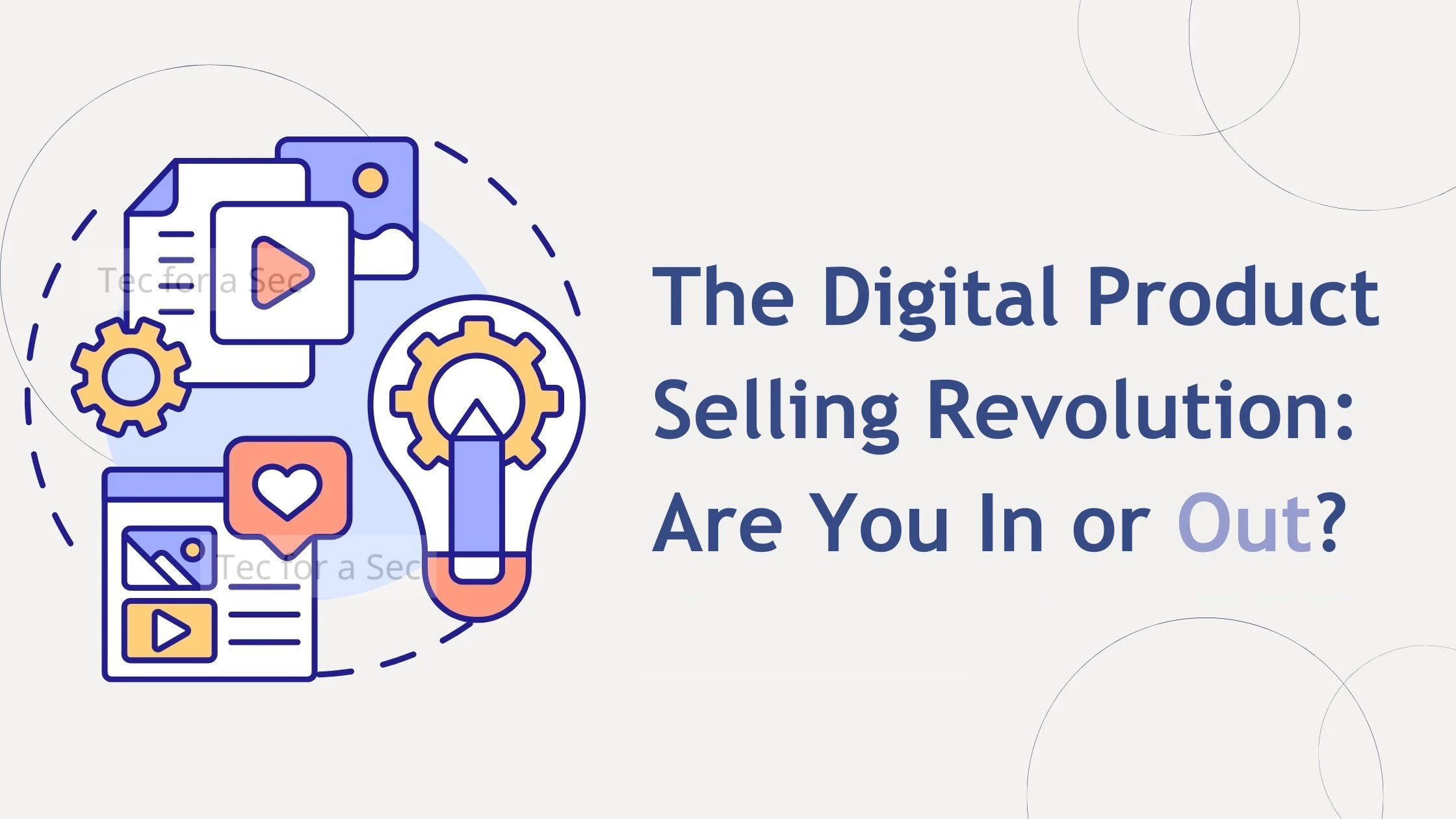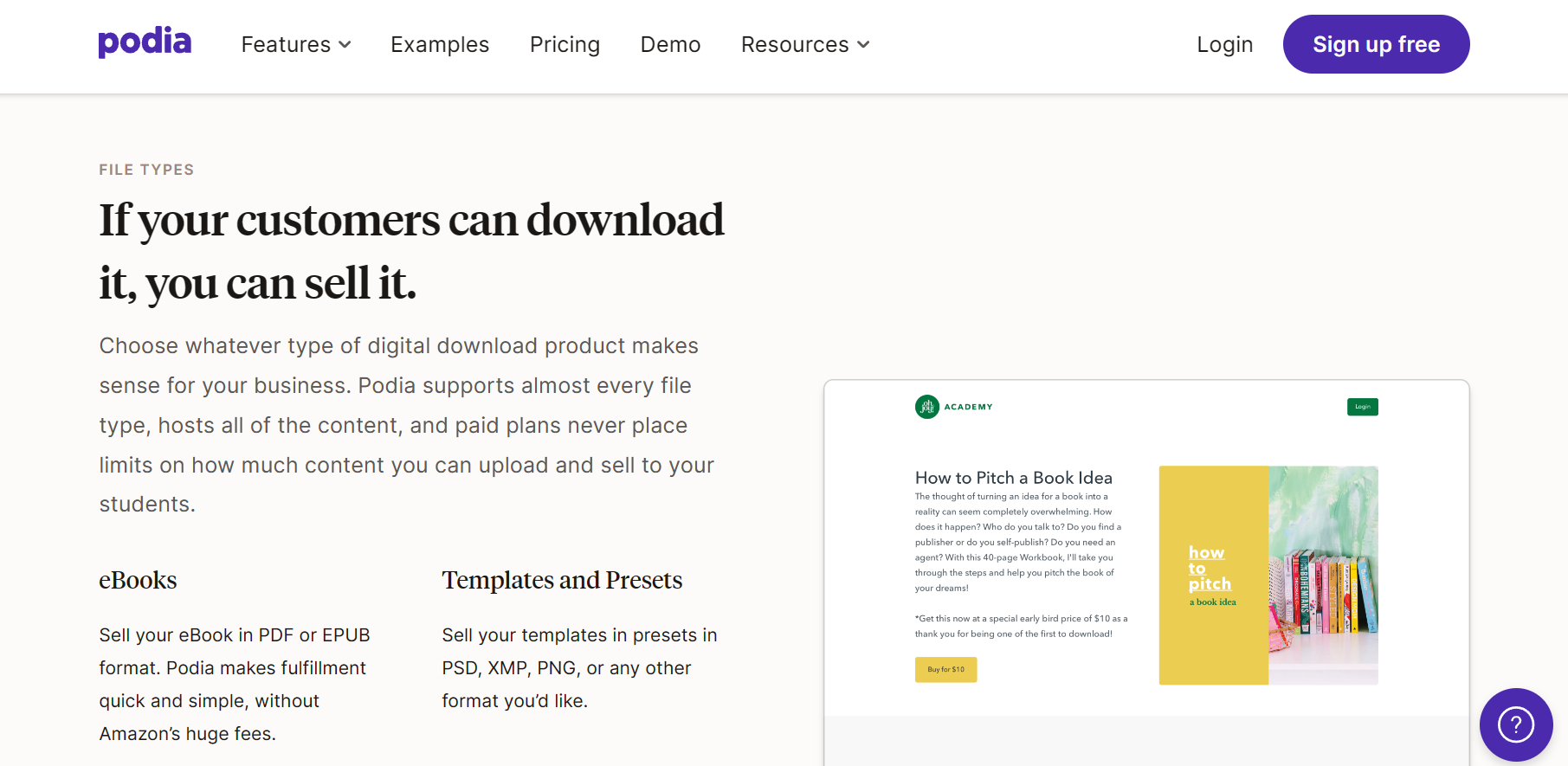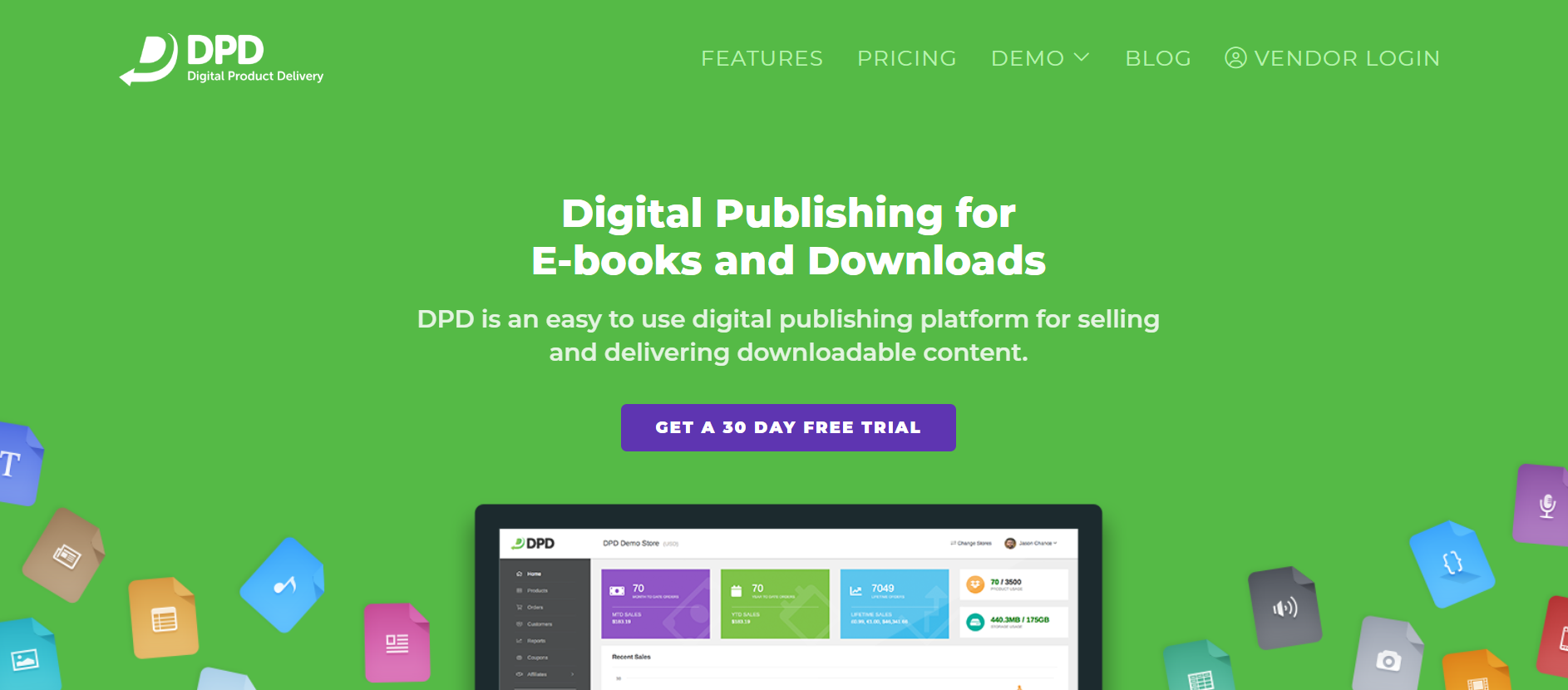Discover the Top Digital Product Selling Platforms of 2023
Creating an online store has become more accessible than ever, thanks to the proliferation of ecommerce platforms. Selling digital products such as online courses, themes, and eBooks has become increasingly straightforward.
However, with the myriad of ecommerce platforms available, selecting the right one for selling digital downloads can be quite challenging. Each platform comes with its own set of advantages and disadvantages, making the decision-making process daunting.
But rest assured, we are here to provide guidance.
In this article, we will introduce you to some of the top platforms for selling digital software. Our goal is to equip you with the information necessary to make an informed choice for your online business. Let's explore these platforms for selling digital downloads:
1. Sellfy
- Sellfy offers a simple yet powerful platform to sell digital products.
- You can effortlessly set up your online store and sell both physical and digital products.
- The platform includes a print-on-demand feature for items like shirts, hoodies, hats, and mugs.
- Sellfy handles product printing and shipping on your behalf.
- You can offer a wide range of digital content, from ebooks to music files, and even sell videos on demand.
- Sellfy's infrastructure is designed to prevent piracy.
- Customizable landing pages, mobile optimization, and various marketing tools are at your disposal.
- Accept payments via Stripe and PayPal.
- Pricing starts at $19 per month (billed bi-annually).
2. Podia
- Podia is a full-service ecommerce platform for selling digital goods like online courses, webinars, memberships, and downloads.
- You can create a comprehensive website to showcase and sell your digital products.
- Support for email and affiliate marketing, along with the option to add a live chat widget.
- Upload unlimited files and videos, set up different payment plans, and offer quizzes.
- Conduct pre-selling to gauge interest in your course topic.
- Deliver content in stages (drip courses) for synchronized learning.
- No transaction fees; instant payouts.
- Customize memberships with options like free trials, monthly or yearly billing, and various membership levels.
- Pricing starts at $390 per year (billed annually), with a free plan available.
3. Payhip
- Payhip is tailored for selling digital downloads, including ebooks, software, and online learning resources.
- It also allows you to sell subscriptions.
- Secure and convenient transactions for customers.
- Seamless integration into your ecommerce store, blog, or social media pages.
- Immediate download access for customers, with email notifications.
- Offer coupons and create mailing lists for marketing.
- An affiliate system to incentivize customers to promote your digital downloads.
- Digital stamping of PDF documents to discourage illegal sharing.
- Solutions for selling software, including issuing software keys and limiting downloads.
- Free plan available, with premium plans starting at $29 per month.
4. SendOwl
- SendOwl excels at selling digital goods through websites and social media, offering simplicity and flexibility.
- Easily integrate an online store into your blog or create social links for selling through platforms like Facebook.
- Support for API development for those with programming knowledge.
- User-friendly purchase and checkout process.
- Flexible payment options, multi-language, and multi-currency support.
- Handle transactions, memberships, subscriptions, and drip content.
- Create codes, license keys, and utilize affiliate marketing.
- Built-in features include promo codes, 1-click upsells, email marketing, and cart abandonment emails.
- Built-in analytics to track your online store's progress.
- Pricing starts at $15 per month for standard plans.
5. Gumroad
- Gumroad is a platform designed to help online creators share their animations, tutorials, apps, music, stories, comics, and other digital assets.
- Personalize your ecommerce platform using CSS.
- Built-in analytics tools to track views and sales.
- Offer multiple versions of a product, such as PDF, ePub, or Mobi versions of an ebook.
- Set your preferred currency for product sales.
- Renting options available, allowing customers a limited time to access digital content.
- Pricing is based on a 10% per sale fee plus processing fees.
6. BigCommerce
- BigCommerce is a comprehensive ecommerce platform suitable for selling both digital and physical products.
- Design stunning websites with various templates.
- Integration capabilities for adding third-party apps to enhance your ecommerce site.
- Scalability to accommodate business growth.
- Built-in mobile optimization for landing pages.
- Supports WordPress integration.
- Features include coupons, digital wallets, SEO tools, and cross-channel commerce.
- Pricing starts at $39 per month, with a 15-day free trial available.
7. Squarespace
- Squarespace is a popular website builder that enables aspiring entrepreneurs to sell both digital and physical products.
- Known for its user-friendly drag-and-drop functionality, it allows people without coding experience to create professional-quality designs for desktop and mobile devices.
- The platform offers a range of templates, including options tailored for online stores.
- Squarespace provides essential tools for online businesses, with the option to add more features through third-party extensions.
- Ideal for those starting without an existing website, Squarespace accommodates various types of products and services, not just digital goods.
- It includes features like tax compliance tools, discount codes, and payment options like Afterpay.
8. DPD
- DPD is an excellent choice for selling digital products like ebooks and graphic novels.
- It seamlessly handles multiple product sales, simplifying the process for sellers.
- Upload your files to DPD, copy-paste its cart buttons, and let DPD's payment partners process payments while you keep all the sales revenue.
- DPD hosts your files, eliminating the need for backups and concerns about product delivery.
- It offers multiple payment methods, including Stripe, PayPal, Moolah, Sage Pay, and Authorize.net.
- DPD supports various third-party integrations, enhancing functionality.
- You can manage multiple online stores conveniently from one account.
- Features like digital stamping, product updates, and key codes enhance security for digital products.
- Pricing is based on storage space needs, starting at $10/month for 1GB of storage.
9. Thinkific
- Thinkific is an excellent ecommerce platform for creating and selling online courses.
- Building online courses on Thinkific is easy with its drag-and-drop interface that requires no coding skills.
- It supports various course content types, including videos, text, downloads, quizzes, and Google Docs.
- Thinkific allows you to create private, hidden courses, involve multiple instructors, set up memberships, and add prerequisite lessons.
- The platform's design interface also uses a drag-and-drop feature, making it user-friendly.
- Thinkific offers the option to use your domain name and provides a range of marketing tools.
- Pricing options include a free plan, Basic ($49/month), Start ($99/month), and Grow ($199/month), with yearly discounts available.
Each of these platforms caters to different needs and preferences, ensuring that you can choose the one that aligns best with your digital product or course-selling goals.
Digital Product Selling Platforms: Common Questions Answered
1. What is the optimal platform for selling digital products?
The ideal choice depends on your specific online business requirements. However, if you are starting from scratch without an existing website, it's advisable to seek an all-inclusive ecommerce platform. Look for one that imposes minimal to no transaction fees and provides readily available templates to kickstart your website development.
2. Where should I market my digital products?
The most advantageous location to sell digital products is through your own website. This approach grants you greater control over your search engine optimization (SEO) efforts and allows you to retain 100% of your profits. However, if you are new to ecommerce, subscribing to an ecommerce platform is a prudent choice. It alleviates the burden of handling backend operations, enabling you to focus on your core business.
3. What represents the most effective method for selling digital products?
Lead generation is a highly recommended strategy. By acquiring leads for your business, you can target potential customers with tailored advertisements through social media or email marketing campaigns. Additionally, consider seeking an ecommerce platform that includes a built-in marketplace, expanding your product's visibility and reach.
In conclusion, the decision on which platform to choose for selling digital products largely depends on your specific needs and preferences. Each platform offers unique features and pricing structures, so take the time to explore them and determine which one aligns best with your online business goals. With the right platform, you can unlock new opportunities and reach a broader audience with your digital creations.











Join the conversation